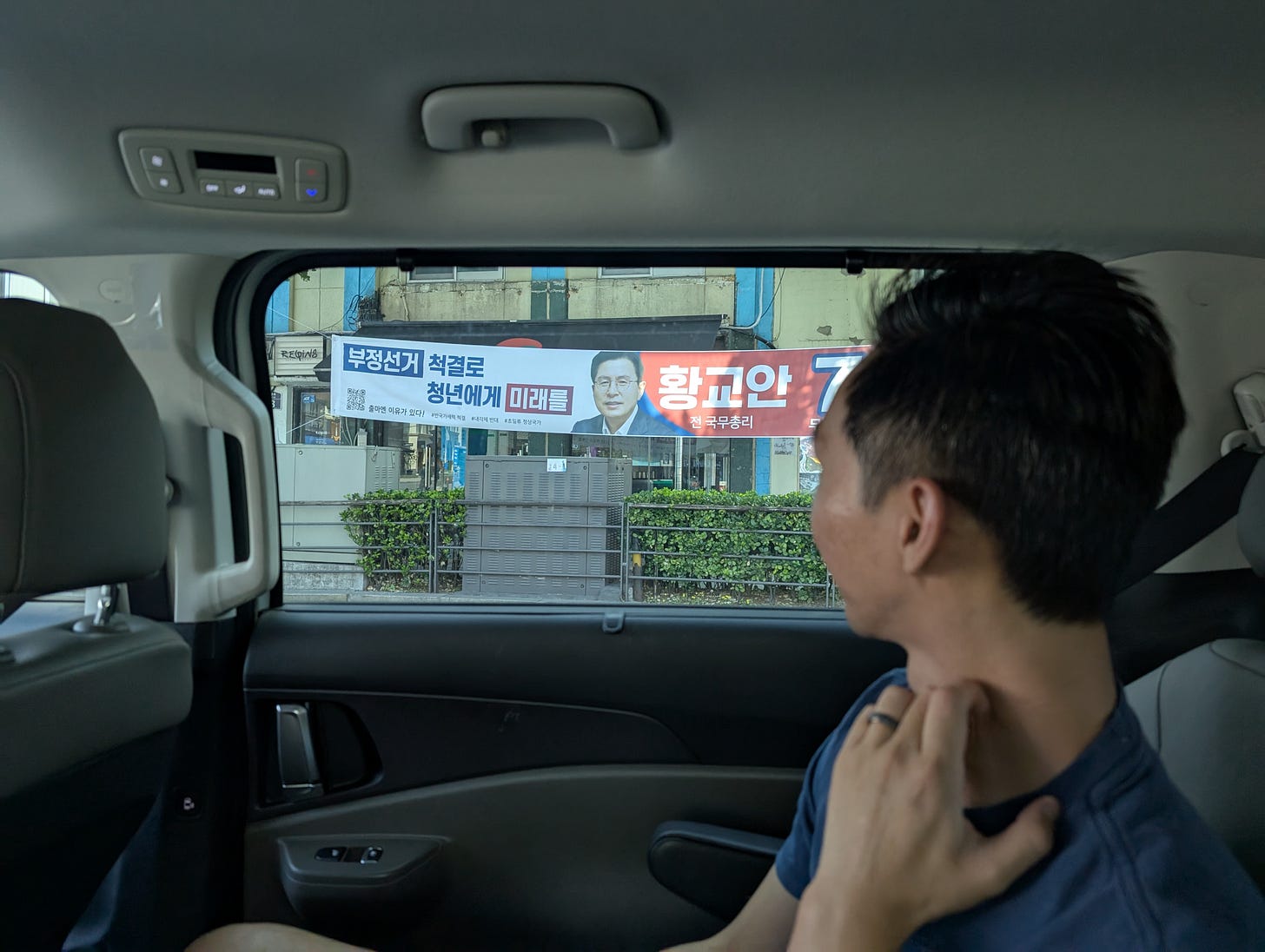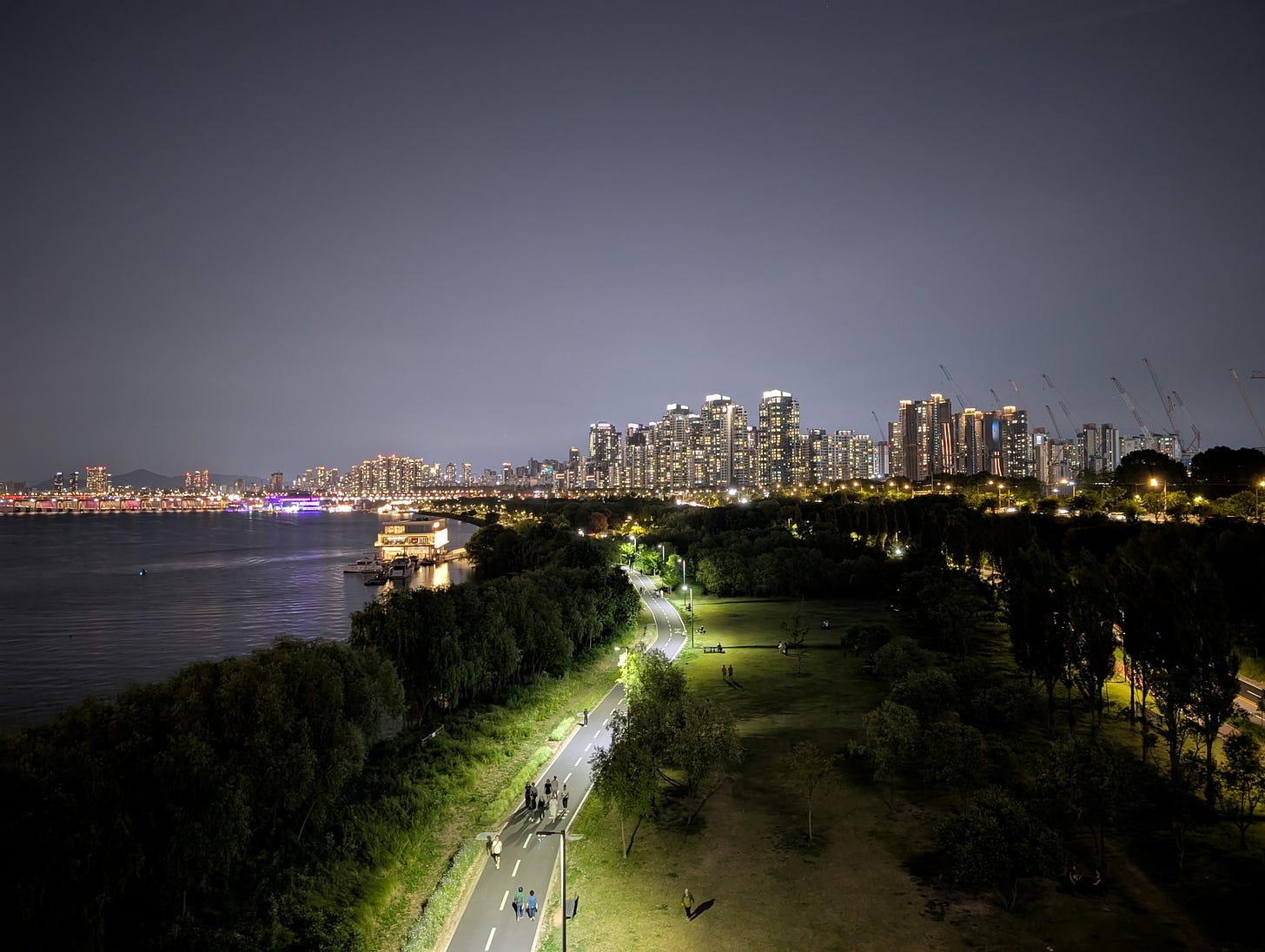Political Ideologies Don't Travel Well
Why Immigrants to the US vote "against type" and why I might if I lived somewhere else.
Earlier this year, I was in South Korea during the 2025 presidential election between Lee Jae-myung, the Democratic Party’s liberal candidate, and Kim Moon-soo, representing the conservative People Power Party. As someone who considers himself a fairly die-hard liberal back home in the United States—opposed to Trumpism, supportive of progressive causes—I found myself in unfamiliar territory.
Most of the Koreans I’m close to voted for conservative Kim Moon-soo. These were smart, thoughtful people who, if they lived in the U.S., would likely fall somewhere between centrist Democrats and old-school Republicans. Yet in Korea, they backed the conservative candidate—and not reluctantly.
Why? Because for them, politics doesn’t hinge on the same issues American liberals and conservatives obsess over. My Korean friends told me they were deeply concerned about Lee Jae-myung’s soft approach to North Korea. To them, diplomacy felt risky, not idealistic. On top of that, Lee’s economic proposals struck them as dangerously close to socialism—especially his populist promises of cash transfers and housing guarantees. Meanwhile, Kim Moon-soo was a known quantity: a pro-business, security-minded figure who promised stability in a time of regional uncertainty.
On the flip side, I met Korean voters who supported Lee and the Democratic Party because of their stance on women’s rights, economic justice, and democratic reforms. For younger voters—particularly women—issues like misogyny, labor conditions, and generational inequality loomed larger than inter-Korean relations. To them, Lee wasn’t too soft—he was human. He saw the social fabric unraveling and wanted to repair it.
What became clear to me is that American political identity doesn’t travel well, and neither does the framework we use to define left and right.

For example, I realized that if many of my American liberal friends were dropped into South Korea, they might vote for Kim Moon-soo. His cautious posture on North Korea would feel “realist.” His deference to traditional institutions might feel like responsible governance, not reactionary nationalism. Likewise, some U.S. conservatives—particularly those concerned with income inequality or unaffordable housing—might find aspects of Lee’s platform surprisingly compelling.
The point isn’t that Korean politics are “backwards” or “wrong.” The point is that political meaning is shaped by local context. In Korea, where the threat of war is not hypothetical, a hardline security policy feels like a moral imperative. In the U.S., the same stance might be seen as warmongering. In Korea, where economic development was once tightly guided by the state, the line between welfare and overreach is drawn differently. What feels like “big government” in Texas might feel like basic fairness in Seoul.
This also helped me understand something I’ve never quite grasped back in the States: why some immigrant communities vote “against type.” Many American liberals are baffled that Korean or Vietnamese immigrants might lean Republican. But if you come from a country where leftist policies failed—or where American military alliances kept your family safe—you don’t view U.S. conservatism as heartless. You might see it as strong, safe, and familiar. Political behavior makes more sense when you zoom out from ideology and zoom in on lived history.
It’s also worth noting that polarization is becoming a serious problem in South Korea, too. Several of my friends there told me that political conversations have grown so divisive that people have stopped talking to relatives or coworkers about elections altogether. Sound familiar?
We often assume that political division is a uniquely American disease—driven by cable news, social media, or Trump himself. But polarization is rising globally, often driven by the same factors: economic anxiety, identity politics, and media fragmentation. Korea, like the U.S., is struggling to find common ground in a society that feels increasingly splintered.
And yet, stepping outside of the American political bubble was oddly clarifying. It reminded me that my values aren’t invalid, but they are contextual. Being “liberal” or “conservative” only makes sense within a particular national conversation. And maybe, just maybe, we’d all be better off if we treated political ideology less like a badge and more like a language—one that doesn’t always translate cleanly.





Your post answered a lot of questions I had. Thank you.